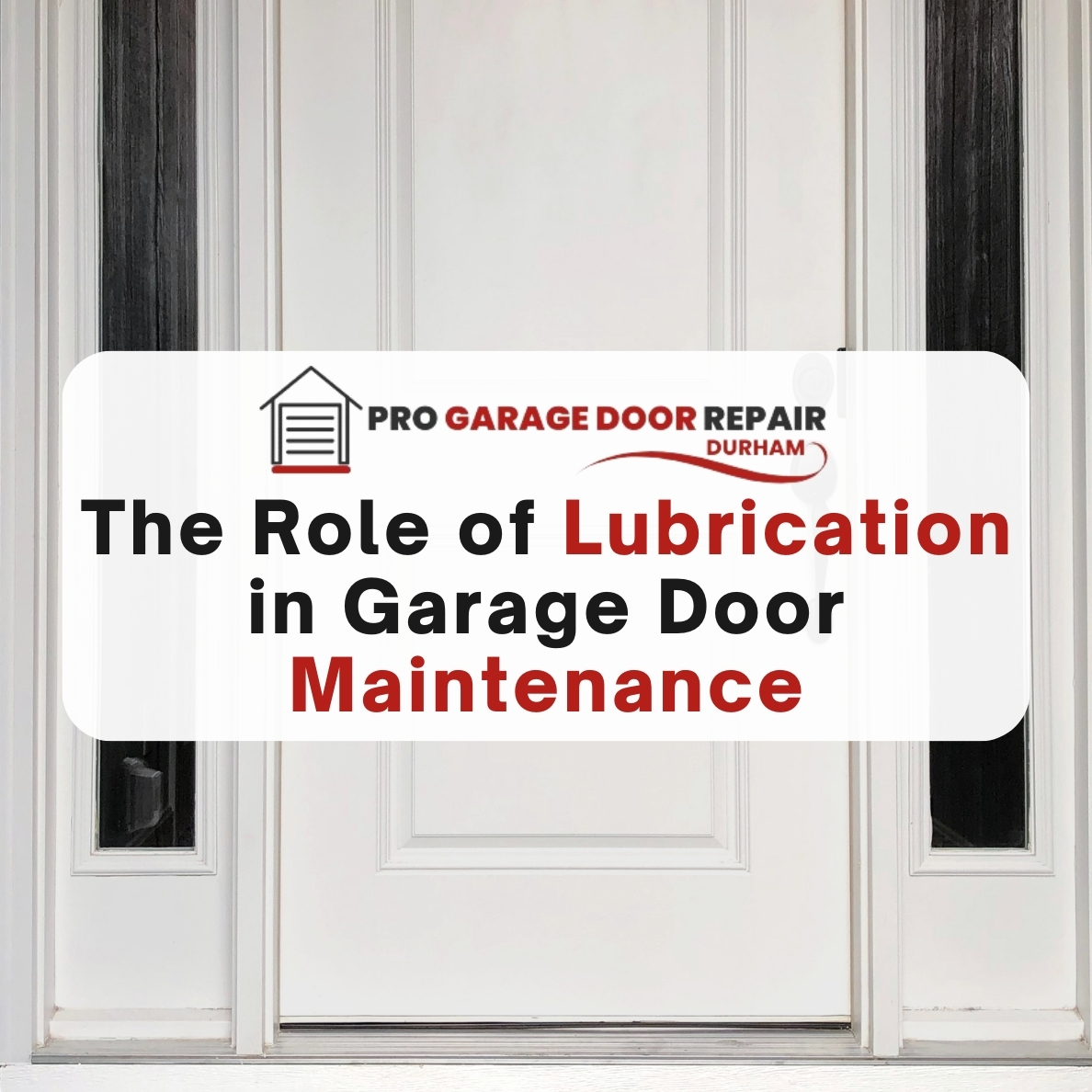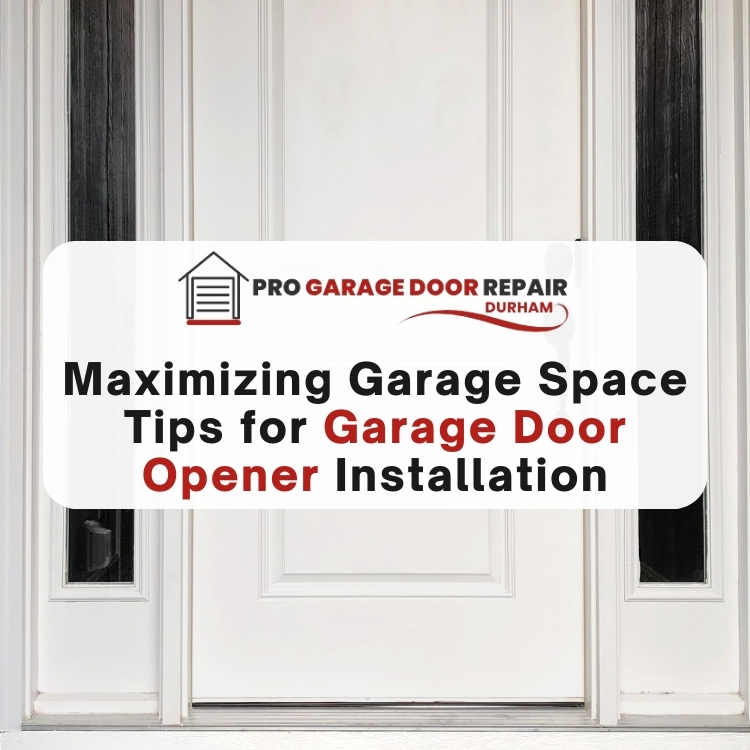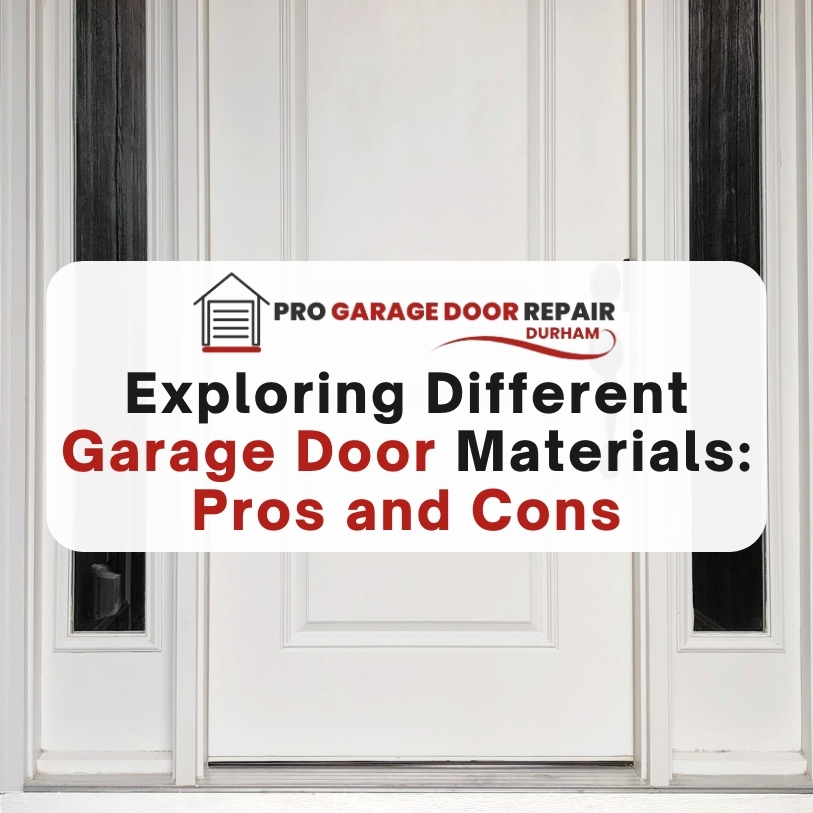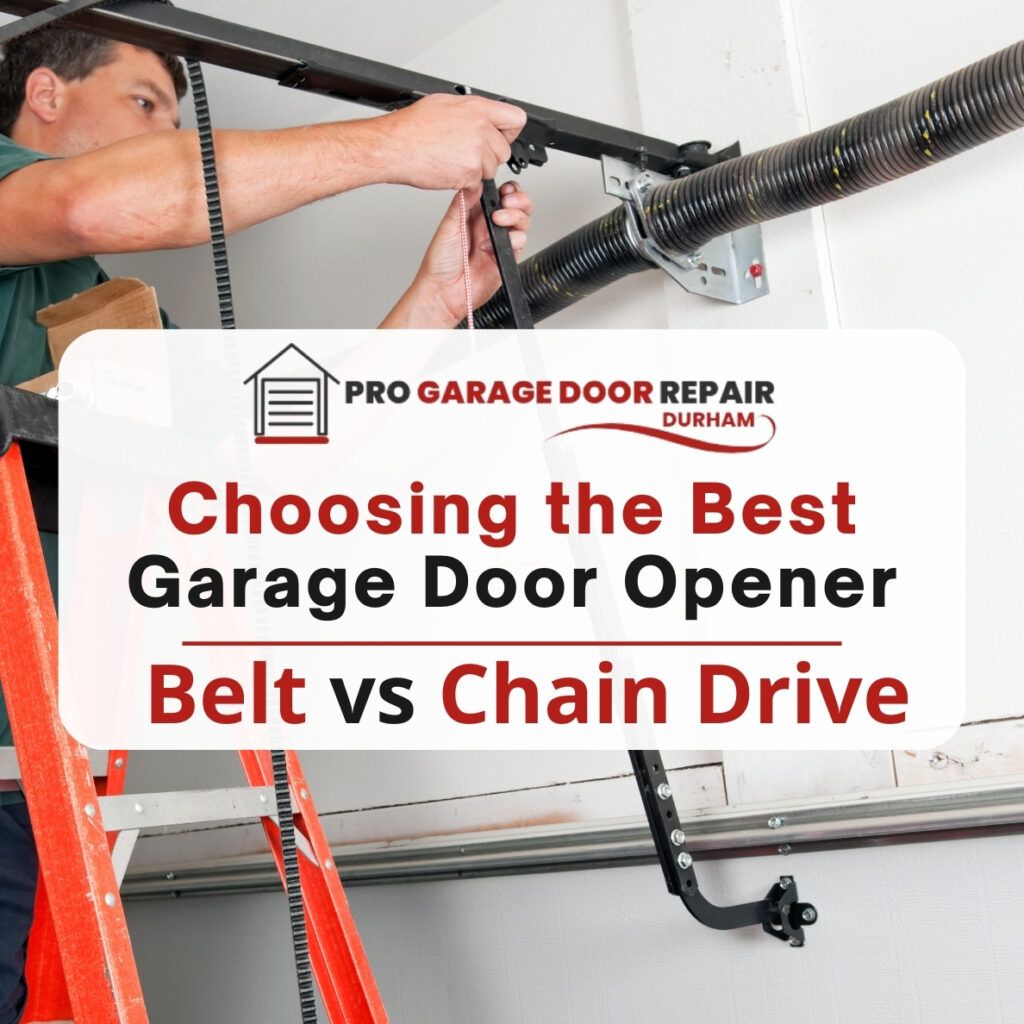Properly lubricating your garage door might not seem like an urgent maintenance task, but it plays a critical role in preventing problems, reducing wear and tear, and ensuring safe operation. Let’s discuss why diligent lubrication is so important for your garage door and how to do it right.
Why Garage Door Lubrication Matters
Neglecting to lubricate your garage door on a regular basis can lead to a number of frustrating and potentially dangerous issues:
Excess Noise
Squeaking and grinding noises from a dry garage door are symptoms of metal-on-metal and plastic-on-metal friction. This happens when components like rollers and hinges lack lubricant to prevent abrasion. The unpleasant sounds only get worse over time without lubrication.
Uneven Movement
Doors that stick and bind when opening or closing often need lubrication. When parts rub and scrape rather than smoothly glide, it causes uneven movement and jolty operation. This strains the opener motor and hardware components.
Safety Hazards
Many modern garage door openers have safety features like auto-reverse sensors to prevent injury or entrapment. However, if mechanical parts lack lubrication, the auto-reverse may fail to engage properly. This poses serious safety risks that lubrication could mitigate.
Clearly, lubricating your garage door plays a huge role in maintenance – preventing wear on parts, avoiding noise issues, ensuring smooth operation, and improving safety. But what exactly needs lubrication and when?
What Parts Need Lubrication
Several mechanical components on your garage door system need periodic lubrication for optimal performance, including:
Rollers and Tracks
The rollers sliding along metal tracks as the door opens and closes endure the most abrasion. Lubricating them and the track surface twice a year prevents excessive wear and noise.
Hinges
Hinges on the door sections also require biannual lubrication to avoid squeaking and resistance when opening or closing.
Pulleys
The pulleys at either end of the opener drive chain or screw drive should be oiled yearly to maintain smooth rotation.
Springs
Torsion springs only need lubrication once a year, preferably with spray lithium grease or a dedicated spring lubricant. Over-application can damage them. Extension springs on either side can be lubricated more often as needed.
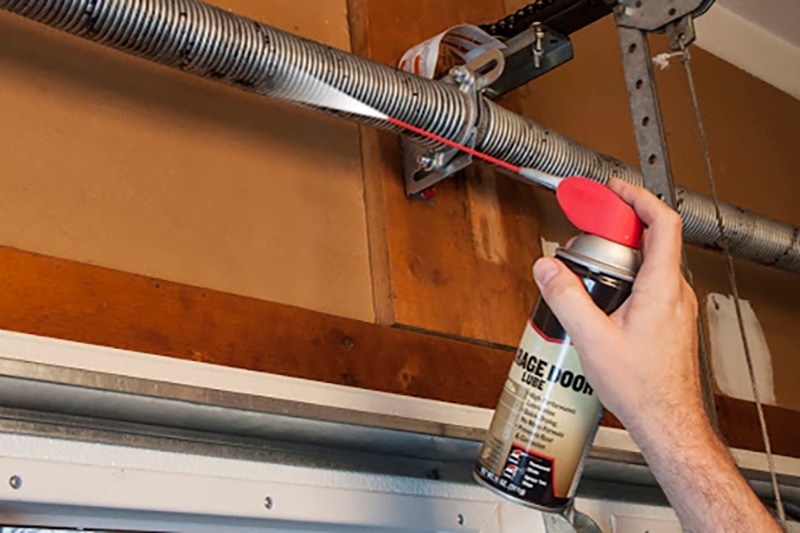
Lubricant Types for Garage Doors
With an array of commercial, industrial, and DIY-focused lubricants available, choosing the right product for your garage door can get confusing. Here’s a comparison of common options:
| Lubricant Type | Pros | Cons | Best Uses |
| Oil-Based (3-in-1, mineral oil) | Inexpensive, easy to apply | Attract dirt and debris | Hinges, pulleys |
| Grease-Based (lithium, silicone) | Longer-lasting, weather-resistant | Messier, hard to remove excess | Springs, bearings |
| Wax-Based (paraffin sticks) | Dry application, less messy | Must be reapplied more often | Tracks |
| Dry Lubricant Sprays (PTFE-based) | Leaves clean, dry film | Can wash away over time | Rollers, latches |
| All-In-One Lubricants | Convenience, less products needed | Not ideal for all uses | Okay for light lubrication |
The optimal lubricant depends on the garage door components needing attention, frequency of reapplication, weather conditions, and your budget. Many homeowners opt for an all-in-one or multi-purpose lubricant out of convenience despite their compromises on effectiveness for specific parts. Others stock several specialty lubricants to use as needed.
When in doubt, clean the area first then apply a thin coat of white lithium grease on rollers, hinges, pulleys, and bearings or a garage door track lubricant on tracks. Check the manufacturer guidelines for any special lubrication instructions too.
DIY Garage Door Lubrication
With the proper lubricants on hand, you can tackle lubricating your garage door yourself:
Safety First
Disconnect the automatic opener before lubricating springs, panels, rollers or tracks to avoid accidental activation.
Clean Surfaces
Wipe all parts with a lint-free cloth before application so lubricant adheres properly without dragging debris.
Apply Lubricant
Follow manufacturer guidelines on amount and method for each product. Less is often more with lubricants.
Distribute Evenly
Cycle the door up and down a few times so the lubricant evenly and thoroughly coats all surface areas needing friction reduction.
Remove Any Excess
Wipe away any grease or oil that oozes out from high pressure points on hinges, bearings and pulleys.
Test Operation
Open and close the door and listen for noise reduction, smooth and steady motion without sticking or restraint.
Be extremely careful when lubricating torsion springs by hand and consider hiring a professional instead. Safety should be the top priority!
Hiring a Professional Lubrication Service
While DIY garage door lubrication is certainly feasible, many homeowners prefer to contact a trained technician instead. Professional lubrication services offer quite a few advantages:
Experience – They know exactly how and where to properly apply specialized lubricants based on door type and materials.
Accessibility – They have equipment to safely reach and lubricate hard-to-access springs and hardware high up.
Efficiency – Pros can lubricate components faster and more thoroughly in less time than a homeowner.
Adjustments – A technician can tweak and adjust parts like hinges for smoother operation after lubricating.
Inspections – Professionals may spot potential problems that need addressing during the maintenance visit.
Though more costly than doing it yourself, professional lubrication gives peace of mind that it’s done safely, correctly, and with adjustments for maximum effect. Many offer package deals for routine maintenance including lubrication and adjustments every year or two.
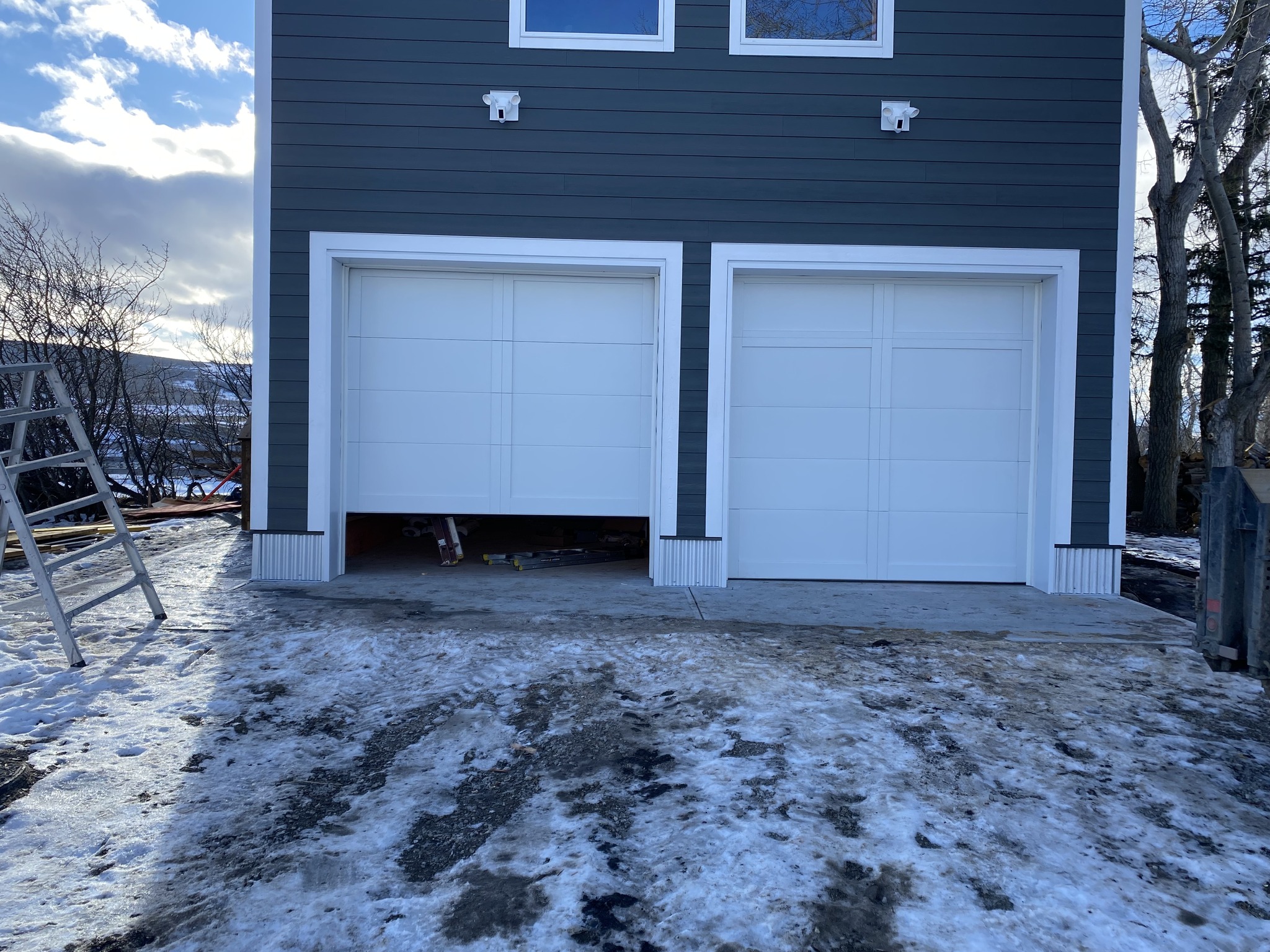
Key Takeaways About Lubricating Garage Doors
- Proper lubrication prevents wear, damage, and excessive noise over time – but it needs performed routinely, not just when problems arise.
- All primary moving parts – rollers, tracks, hinges, pulleys, bearings, and springs – periodically need appropriate lubricants to avoid friction and ensure smooth operation.
- Choose lubricants designed specifically for garage doors and hardware when possible based on frequency, weather, and type of components needing service.
- DIY lubrication works but requires strict attention to safe practices. Alternatively, hiring professionals ensures thorough work.
- Along with insulation, weatherstripping, opener maintenance, and more, lubrication remains a vital piece of proactive garage door care.
Don’t ignore this basic task just because your garage door still opens and closes! Consistent lubrication goes a long way for longevity, safety, and preventing costly repairs down the road.
How often should I lubricate my garage door?
Most manufacturers recommend lubricating moving components about twice per year – spring and fall. Areas with extreme weather may need more frequent lubrication 3-4 times annually. It also depends on garage door type, frequency of use, and climate conditions. Keep an ear out for squeaking hinges or grinding rollers as cues too.
What lubricant is best for garage doors?
Specialty lubricants designed for garage doors will serve best. Look for brands compatible with your door material that provide smooth glide without attracting exterior debris. Waterproof silicone or lithium grease works for many metal parts. PTFE spray lubricants avoid dust buildup on rollers. Paraffin wax sticks for tracks minimize oily mess. Match lubricant properties to each affected component.
Can I lubricate the garage door myself?
Absolutely, as long as you use extreme caution and follow manufacturer precautions, particularly around torsion springs. Have a helper available just in case and disconnect the automatic opener first. Make sure to use proper lubricants and application techniques as well for sufficient coverage without over-greasing. Consider age and mobility as factors too in DIY feasibility.
When should I call a professional for lubrication?
If climbing ladders to reach garage door hardware poses unsafe challenges or if the door shows signs of misalignment, broken parts, or significant damage needing repair, leave it to the skilled pros instead. They have specialized tools, lighting, lift equipment, and know-how to safely and precisely lubricate tricky components like springs while checking for operational issues that may also need fixing for smooth function. Let the experts handle anything complex, inaccessible, or mysterious.

